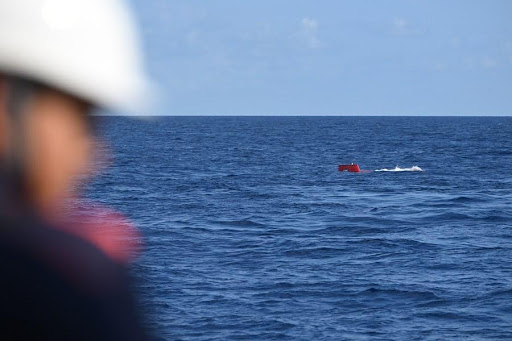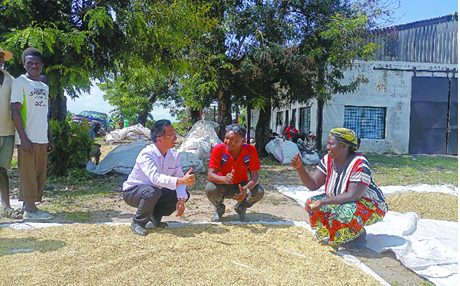Lahore: 27 February, 2024 – Pakistan’s increasing demand for solar energy is on the rise as both residences and businesses increasingly recognize solar power as a reliable and cost-efficient source of electricity.
According to Bloomberg New Energy Finance (BloombergNEF), Pakistan imported USD$1.11 billion worth of solar products from January to September 2023, equivalent to an estimated 4GW of modules. This coincides with the Private Power and Infrastructure Board (PPIB) releasing framework guidelines in September 2023 to expedite power purchase agreements for solar projects and integrate solar onto public building roofs.
In light of these developments, Trina Solar, a global leader in smart PV technology and energy storage solutions, anticipates substantial growth in the Pakistani market. This optimistic outlook is fueled by reforms in solar initiatives, fluctuating fuel prices, and rapid advancements in solar technology. The company’s foresight is supported not only by market dynamics but also by a strategic focus on reducing solar project Levelized Cost of Energy (LCOEs). The introduction of high-power modules, driven by technological breakthroughs like the 210mm n-type i-TOPCon Advanced technology, aligns with the Pakistani market’s preference for high-power output modules. Trina Solar is a pioneer in these technological advancements, foreseeing the industry’s transition into the 700W era.
As evidence of Trina Solar’s impactful presence in Pakistan’s energy sector, the company has undertaken projects across the country in various market segments, including residential, commercial and industrial (C&I), and utility scale. For instance, Trina Solar’s industry-leading 210mm Vertex modules were installed in FectoCement’s (FSEL) 5MW solar project in Islamabad and Asif Rice Mills’s 4MW rooftop solar project in Larkana. C&I installations encompass Packages Mall’s rooftop in Lahore and Fish Farm Variable Frequency Drive’s (VFD) Northern Bypass in Karachi.
Dave Wang, Subregional Head of Trina Solar Asia Pacific, emphasizes the company’s commitment to empowering diverse entities across Pakistan, fostering both economic prosperity and environmental stewardship. Wang states, “Our mission ‘Solar Energy for All’ propels our commitment to delivering industry-leading modules, enabling our customers to achieve ‘grid parity’, making it more economical to generate electricity from solar modules than to rely solely on the conventional grid.”
Wang underscores the significant impact on households and businesses, noting, “Reducing the cost of electricity makes a substantial difference, especially given the recent surge in electricity prices over the last 18 months, driven by high fuel prices and general inflation. Additionally, residences and businesses in areas experiencing prolonged power blackouts can now tap into an alternative source of electricity rather than relying solely on the grid.”
To illustrate the financial benefits, Wang provides an example of a residential household with a monthly electricity consumption of 500 units, resulting in a monthly bill of approximately Rs. 20,000. If the homeowner invests in a 5kW system generating 6200 units at a cost of Rs. 900,000, the potential annual savings of Rs. 341,000 annually. In this scenario, the modules would essentially cover their own costs within 2-3 years.
The adoption of solar is most prominent in major cities like Islamabad, Karachi, and Lahore, driven by higher population density and increased awareness of solar module technology. Larger cities also benefit from multiple installers, providing a range of options, reflecting the growing interest and recognition of the benefits of solar energy in densely populated urban areas.
Building on this momentum, Trina Solar is poised to take center stage at the Solar Pakistan exhibition in Lahore (27-29 February), where it will showcase its latest Vertex N range of 210mm modules, powered by n-type i-TOPCon Advanced cell technology, as well as its energy storage systems, demonstrating its ability to provide integrated smart PV solutions.
Trina Solar will launch in Pakistan the Vertex N 720W (Vertex N NEG21C.20), an n-type i-TOPCon bifacial dual glass module which offers maximum module efficiency of 23.2%, designed for compatibility with existing mainstream system components. It features super multi-busbar (SMBB) technology for better light trapping effect, lower series resistance and improved current collection. The module is most suitable for utility projects.
Other modules on display include the:
– Vertex N NEG19RC.20, a 620W bifacial dual glass module with maximum efficiency of 23.1%;
– Vertex N NEG20C.20, a 645W bifacial dual glass module with maximum efficiency of 22.8%;
– Vertex DE19R, a mono-facial 585W monocrystalline module with efficiency up to 21.6%.
Besides featuring the latest technology in the market, Trina Solar’s Vertex modules are also showcasing cutting-edge technology tailored to withstand Pakistan’s diverse climate. Rigorous performance trials, including static mechanical load testing, non-uniform snow-load testing, extreme low-temperature mechanical load testing, hail testing, extreme dynamic mechanical load (DML) testing and extreme wind tunnel testing, ensure the modules’ resilience against the harshest elements. This robust testing protocol not only aligns with the specific extreme weather challenges in Pakistan but also guarantees the reliability and durability of Trina Solar modules under varying climatic conditions. Certifications from globally renowned third-party organizations such as UL in North America and TUV Rhineland in Europe affirm their quality and performance.
As part of its comprehensive suite of renewable energy solutions, Trina Solar will also showcase for the first time in Pakistan the latest TrinaStorage product, Elementa 2, a 4.07MWh capacity energy storage system designed for utility-scale projects. It features Trina’s proprietary 306Ah lithium iron phosphate (LFP) cell which has an expected lifetime of 12,000 cycles. Its highly integrated design not only reduces footprint, but also demonstrates intelligent management of its liquid cooling system and rack-level battery management. Backed by a significant in-house battery cell manufacturing capacity, TrinaStorage has emerged as a Tier 1 Global Energy Storage provider, providing independent power producers (IPPs) with containerized storage solutions, positioning it as an indispensable partner for EPCs and developers.
In summary, Trina Solar’s presence in Pakistan signifies a milestone in advancing renewable energy solutions. With cutting-edge technologies showcased at the Solar Pakistan exhibition, including high-power modules and the innovative TrinaStorage Elementa 2, Trina Solar reaffirms its commitment to becoming a total solutions provider for renewable energy.
Trina Solar’s stand at Solar Pakistan is in Hall 1 booth B1-7.












